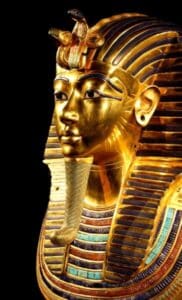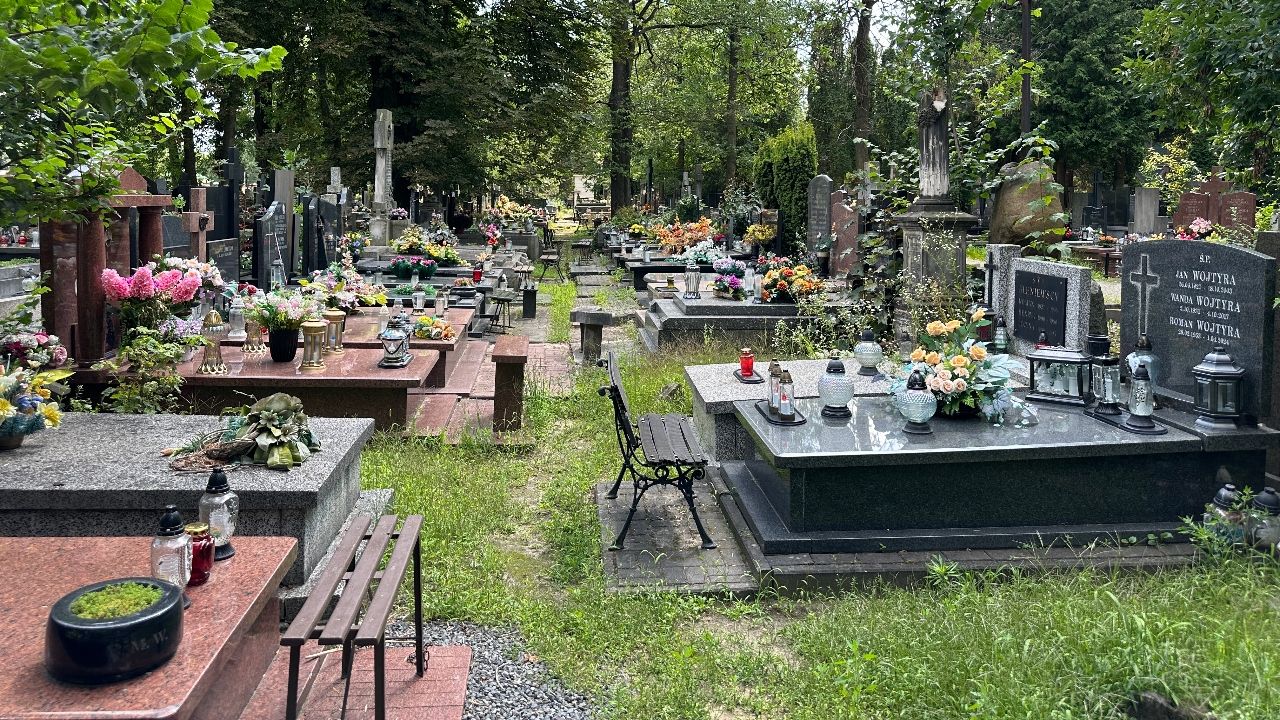Magdalena Ziętek-Wielkomska: In the context of expanding promotion of the alleged European values, which become a pretext for constantly expanding the power of the EU institutions, the question arises of actual European values, or our roots.
Archbishop S. Wielgus: It is frequently said that our civilization derives from 3 sources: Greece, Rome and Christianity. Greece is an intellect, Rome is simply a law, and Christianity is simply a gospel. And there's no uncertainty about that. To the top extent, this tradition was developed during the mediate Ages. This mediate Ages taught people to think logically. This is the difference between East and West in Europe: East has not survived the scholastics and so there are always problems with logical thinking, and so far the West has been based on the foundations I mentioned. I would add that the mediate East is besides crucial in addition to these 3 sources, and there is no uncertainty about it. First of all, Egypt and its civilization, in the end Plato spoke of being like small children compared to the wise men of Egypt. He understood perfectly well that Egyptian influences went much deeper than it might seem, and there is no uncertainty about it either. I wrote a lot about this story of the supposedly dark medieval and bright modernity.
Adam Wielomski: The issue of Egypt has been of large interest to us, due to the fact that we have not yet met with the thesis to look at 1 of the sources of our civilisation.

Archbishop: Wrong, wrong. large civilizations and Sumerians and Babylon, and above all Egypt, influenced our perception of the world.
AW: straight or through the Old Testament?
Archbishop S. Wielgus: By Greeks primarily. They benefited greatly from the Egyptian heritage.
MZW: However, it usually opposes Greece to Egypt: Greece is reason and the mediate East is mythical thinking.
Archbishop: It is wrong, for monotheism appeared in Egypt.
AW: Yeah, from Ekhenaton.
Archbishop: Yes, yes. And the open question is to what degree it inseminated the Jews, but it surely influenced them. Akhenaton’s spiritual reforms surely had a profound effect on Moses. In this context, it is worth recalling the German investigator John Assmann, author of the book “From Achenathon to Moses. Ancient Egypt and spiritual Change". He, of course, writes negatively about monotheism, thinks that he caused anguish to man and so on. Nevertheless, it draws attention to what happened then, and specifically to the creation of the alleged Moses distinction, Mosaische Unterscheidung. Until the time of Moses, all civilizations had a discrimination for good—bad and holy—unholy. Moses, on the another hand, made a discrimination between actual and false and advocated the truth. For example, the Romans did not know this distinction; hence they had no problem accepting many religions – the question of attitude to fact for them did not exist. Hence, the Jews first, and later Christians caused specified a reaction of hatred and resentment. Christendom had to regulation out falseness, which was in another religions, so it could not accept what the Romans were doing, or that they accepted all idol without problem into the pantheon and had peace due to the fact that they did not realize this discrimination of Moses. Assmann emphasized it very strongly, but that I think it is affirmative and he is negative (Laughter).
MZW: Following this lead, 1 can better realize the function of the question of fact in the context of the improvement of actual – let us call it – European values. The fact was a central category of Christian culture.
Archbishop: Yes, but we are now surviving in the age of relativism. What surrounds us is the dictatorship of relativism, as Benedict XVI said. We are accused of reasoning that there is no nonsubjective truth, there is no nonsubjective good, everyone has their truth. Of course, they became very popular and encompassed a full lot of people and their mentality. This is simply a immense problem. The church was besides somewhat lost, especially any churches, e.g. German.
AW: Let us decision on to the issue of Polish medieval philosophy, which His Excellency dealt with.
Archbishop: It was in Germany that I was doing this, I was a scholarship to the Humboldt Foundation and habilitation I was preparing at the University of Munich. My specialty was editing medieval texts. My habilitation work, which I spent 5 years of my life on, is the issue of Benedict Hesse's commentary on Aristotle's “Physics”, which was only available as a manuscript. Of course, everything in Latin. So I sat in Munich and did it utilizing a very good library.
AW: Ant work.
Archbishop: Ants, incredibly, I find myself amazed that I endured it (Laughter). Introduction is in Polish due to the fact that all specified edition must have an introduction, in which everything is discussed, why, what and how. So I took care of it. At KUL I conducted a seminar, promoted 30 doctors who work at various universities in Poland. any of them proceed this work. There is no past without very well-released sources. I wrote another things later, but I was interested. You had to master a full bunch of editing techniques, due to the fact that it was written not only manually, but besides utilizing different shortcuts. You had to master this abbreviated discipline and all the ancillary sciences of past so that you could even get involved, and you had to know Latin. I regret that there is no Latin in schools now. This is the origin of our civilization. There's no uncertainty about that.
AW: What about our Polish medieval philosophers? Were they European then?

Archbishop: Kraków in its time was a crucial intellectual centre in Europe. He collected at least a twelve authors who were known in Europe. They did, of course, comment on ancient and modern works. At the time, the commentary on Aristotle and the operative part of Peter Lombard was a basic form of technological work. And in Krakow quite a few specified comments were created, which are inactive there today, hence Kraków attracts various specialists from all over the world. In 1 of my books I compose about the importance of Krakow in the mediate Ages. I besides wrote a book about Pawle Włodkowic and the function of the Kraków School in the innovative emphasis on human rights.
MZW: What was the impact on the improvement of Polish philosophy?
Archbishop: The Jesuits created schools in the East, Belarus, Ukraine.
MZW: Were there besides strong intellectual centers in the university rank?
Archbishop: Higher schools were established, but mostly clergy were educated there, but in order to gain any European momentum, no.
AW: And did not the Polish-Lithuanian union and the decision of Poland to the East have a destructive effect on Polish mentality, including the improvement of philosophy? Besides, as we were already talking about, they, in the East, did not go through scholastics. Was this not negative for the Crown, or central earth?
Archbishop: Many historians are convinced that this was the case. For example, Jasienica wrote that connecting us to the East weakened us.
AW: Yes, was there any affirmative intellectual influence from this East?
Archbishop: No, it wasn't. The East had any from Greece, from Byzantine, but the Byzantine doctrine was not specified advanced flights. It was mostly neoplatonism.
AW: So from the point of view of intellectual improvement of Polish philosophy, this did not serve.
Archbishop: If there was anything good, it was the influence of Poles on the East.
AW: Although it is hard not to get the impression that the East rejected what came from the West through Poland.
Archbishop: Yes, of course, but that is another matter, but yes.
MZW: If you look at the map of universities in Europe, since the Renaissance, for example in Germany, virtually all major city had a university. There, they did. And in Poland at the same time the Krakow Academy fell. Polish nobles, if they wanted to be educated, were mostly traveling abroad.

Archbishop: Yes, in the late mediate Ages things were different, and our university in the 15th century held an crucial place in Europe. It was in Krakow that Benedict Hesse, who I did scientifically, worked. It was of German origin, but it didn't matter, it was the rank of the university. And the Germans did pay large attention to science. Just callback the concept of a university created in the 18th century by Wilhelm von Humboldt. Humboldt created the concept of the Central European University, which we have besides taken over and had until recently, until the reforms of fresh decades. This concept was based on the thought of 4 faculties: the law, artes liberales (i.e. philosophy), medicine and theology. Artes liberales included all the liberated plays. Even before the war, if individual studied mathematics, physics or chemistry, he had a PhD in philosophy, for example in mathematics. due to the fact that everything fell under artes liberales, under philosophy. In addition, the first 2 years of survey in philosophical or theological faculties included a full scope of cognition that had to be studied, passed, etc. And it wasn't until 3 years ago that you could focus on the chosen issue. Each prof. taught what he wanted, and the student could look and perceive to these lectures. This worked very well, taught to think, due to the fact that the university is to conduct technological research, didactics and spread values, the most crucial ones: intellectual, aesthetic, moral, ethical, due to the fact that ethics is simply a philosophical explanation of morality. At the moment, however, all of this has been lost, the university is frequently made of vocational schools. It's just to learn something that's useful. In fact, in fresh centuries there have been 3 basic forms of universities, actually four, due to the fact that the French university was something else, there were mainly schools aimed at educating politicians, that is, the people who were to regulation France. Yes, they offered comprehensive education, but serving political purposes alternatively than technological research. English universities distinguished the academies that were to conduct investigation and purely teaching institutions. American universities focused on what was useful, taught what was useful, what was crucial at the moment, what was useful. But we in Central Europe were influenced by the concept of Wilhelm von Humbolt.
MZW: It seems that the essence of Polish cultural code is aristocratism. Could it truly be concluded that the demolition of aristocraticism must consequence in the demolition of Polishness?
Archbishop: Undoubtedly Aristotle played a colossal role, not only in Poland, but especially in Poland. Thanks to Thomas of Aquinas, above all, he played a fundamental function in theology and philosophy. As they say, Thomas of Aquinas baptized Aristotle, utilized him. due to the fact that this is the basic thing: namely Aristotle is simply a realist. Let us remind that realistic and idealistic doctrine is distinguished. The realistic doctrine begins with a peculiar being that is at the moment. From being I start my reflection on reality, from being real. Idealistic doctrine begins reflection with ideas, thoughts. Descartes said cogito ergo sum. He began to reflect with thought. In the meantime, doctrine is expected to discover reality and should start reflection with real existence. Things can be unwittingly invented and then started to philosophy. And it is the misfortune of modern times that we have departed from realistic philosophy, from realism that describes being as something real. Thomas was a realist, and his theology is like this. At 1 time, Thomas played a fundamental function in all seminaries. I was inactive ordained before the Council, in ancient times, so we studied theology in Thomas. Without doubt, the departure from the realism of Thomas or Aristotle leads to postmodernism, and consequently to relativism.
MZW: Clearly, the fight against Latin civilization is not only the demolition of aristocratism, but besides the negation of Latin. Here, too, I see German influences, due to the fact that Germany has developed a real obsession with fighting everything Roman and Latin. In the Renaissance age, the thought of German as the purest language appears in them, and Latin as the dead language.
AW: And then Heidegger will have a problem with Latin as an artificial language. On the another hand, Germany considered that German was related to Greek.
MZW: It is hard not to announcement their obsessive hatred of Rome. Therefore, so rapidly they were implemented council changes. In 1 German library in Germany, they stand on the shelves of the yearbooks of the well-deserved German Jesuit magazine "Schollastik: Vierteljahresschrift für Theologie und Philosophie" (Scholastics: Theological-philosophy Quartet) and from 1965 to 1966, from the number to the number, it was renamed "Theologie und Philosophie" (Theology and Philosophy). All references to scholastics and tomism have been removed. Since 2020, the magazine has not appeared at all.
Archbishop: Scholastics are ashamed, and this was a real school of thought.
AW: At that time they exchanged the full editorial board, the level of texts changed completely, another topics appeared. Earlier, large texts were published there, in terms of philosophy, polemics with Hegle, resembling large scholastics. And abruptly everything was gone and there were problems of dialog with the modern world.
Archbishop: And people stopped reasoning logically. The sophists already distinguished alleged teaching materialism and teaching formalism. Materialism was to teach the student as much as possible, encyclopedically, to know as much as possible, and formalism was to teach him to think that he could cope in the most hard intellectual situations. And that's what logic, doctrine in different forms, is for math, due to the fact that without it there is no appropriate thinking, and unfortunately it is lost at the moment.
MZW: We know priests who complain about the fact that there are less and less theological and philosophical subjects in the seminaries of the clergy, and more psychology, pedagogy and akin subjects.
Archbishop: My occupation is to make a mistake, but unfortunately I have no control over it.
The full interview with Archbishop Stanisław Wielgus will be published in the next issue “Pro Fide Rege et Lege”
















